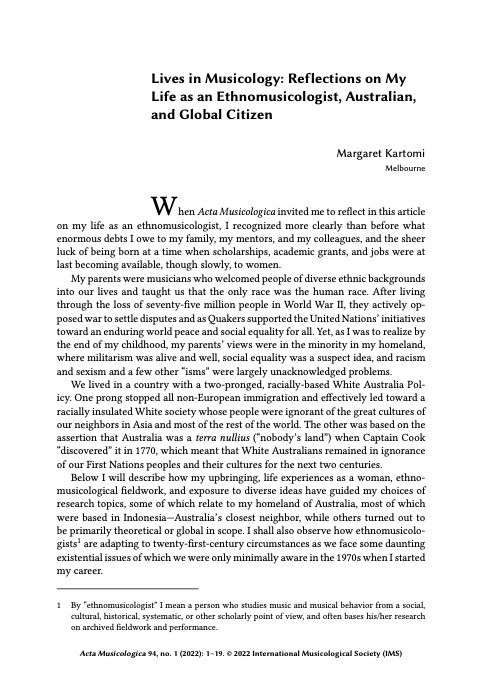Abstract
My life as an ethnomusicologist benefited greatly by my critically-minded, musicianly parents and husband, from the excellence of my mentors, colleagues, and students, and from living at a time when scholarships and research grants were becoming available to women, thus enabling me to become an ethnomusicologist. My exposure to diverse ideas and five decades of annual field trips in Southeast Asia, especially Sumatra, guided my choice of research topics, some of which were descriptions of hitherto unexplored music cultures and others mainly theoretical and global in scope. They included searching for cultural meanings in musical instruments and their culturally diverse classifications, including the human body as a percussive instrument and producer of body percussion music in Aceh and beyond. I saw many changes in Australian and overseas universities in the early twenty-first century which became more like corporations than centers of learning, while fragmenting political intrigues, growing class inequality, and proliferation of weapons of war led to threats to the humanities, and not only to culture wars about race, gender, and climate change but also to the calamities of actual war itself. These are the realities that we musicologists need to address in our work.

